THE MUSEUM OF MODERN ART ANNOUNCES FILM EXHIBITIONS FOR JANUARY-APRIL 2011
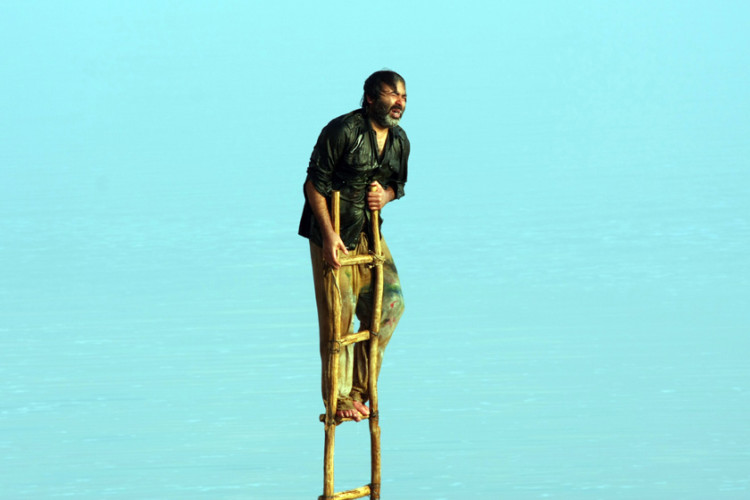
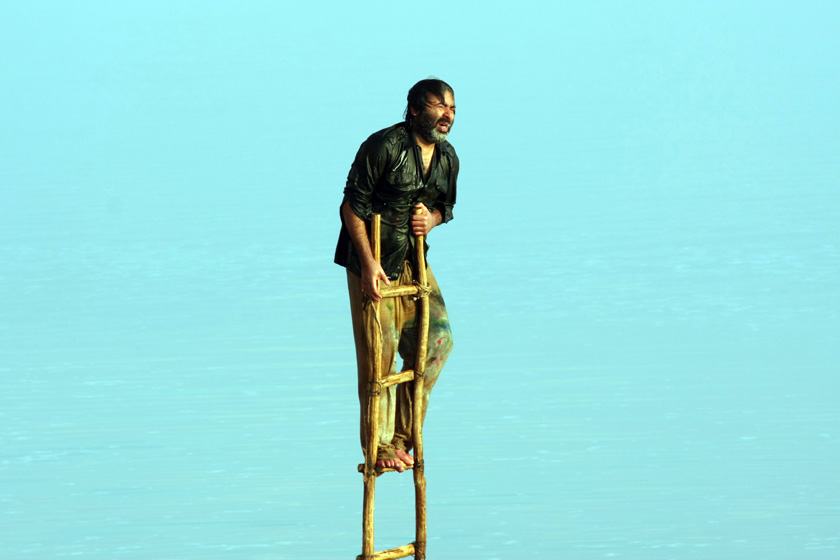
Films are screened Wednesday-Monday.
For screening schedules, please visit www.moma.org
The public may call (212) 708-9400
The Museum of Modern Art
11 West 53 Street New York, NY 10019
New York, December 9, 2010—The Museum of Modern Art announces film exhibitions from January through April, 2011, including career retrospectives of important filmmakers, the 40th anniversary of New Directors/New Films, annual exhibitions such as Global Lens, Documentary Fortnight, and Canadian Front, and select screenings.
A major retrospective of director Charles Burnett (April 6–25), a MacArthur Award–winning independent filmmaker, will showcase 20 of his films, including shorts. Born in Mississippi and having lived in Los Angeles most of his life, Burnett has tapped into his own roots to create a body of poignant work that includes such critically acclaimed films as To Sleep With Anger (1990). He first received note when his film Killer of Sheep (1977) won a prize at the Berlin Film Festival in 1981 and was later selected for the National Film Registry for being “culturally, historically, or aesthetically significant.”
A retrospective of the work of master Soviet director Dziga Vertov (April 15–June 24) will trace Vertov’s radical experiments in image and sound as they evolved from silent films in 1918 to sound films in the 1940s. The exhibition opens with the U.S. premiere of Celovek s kinoapparatom (Man with a Movie Camera) (1929) in a newly restored full-frame print, with live musical accompaniment. Also presented are 13 programs of Vertov’s silent films, including the U.S. premieres of 14 Kino-Nedelia (Kino-Week) films from 1918–19.
The Museum presents its annual exhibitions, including the 40th anniversary of New Directors/New Films (March 23–April 3), the collaborative program between The Museum of Modern Art and The Film Society of Lincoln Center dedicated to the discovery of new work by emerging filmmakers. Documentary Fortnight 2011: MoMA’s International Festival of Nonfiction Film and Media (February 16–28) showcases recent nonfiction film and media. Other annual exhibitions include Oscar’s Docs (February 4-6), which each year looks at documentaries that have won the Academy Awards, Canadian Front (March 16–21), and Kino! New Films from Germany (April 27–May 2).
MoMA will offer a variety of weeklong presentations, including Richard Kaplan: Wayfarer and Truth-Teller, “All the Wrong Art:” Juxtapoz Magazine on Film, and BigPond Adelaide Film Festival, with film selections from the biannual Australian festival. All screenings are in The Roy and Niuta Titus Theaters unless otherwise indicated. For screening schedules and updates, visit www.MoMA.org.
Global Lens
January 13–28, 2011
MoMA, in collaboration with the Global Film Initiative (GFI), presents Global Lens 2011, the eighth annual touring film exhibition conceived to encourage filmmaking in countries with developing film communities. The selection of nine programs, each from a different country, includes films developed with seed money from GFI, and represents a concise survey of contemporary filmmaking from areas where local economic realities make such expensive and technology-driven endeavors a challenge. Accomplished, entertaining, and thought-provoking, the films are also deeply rooted in the social and political realities of the countries where their talented and resourceful makers live and set their stories. Global Lens includes two weeklong runs: Federico Veiroj’s La Vida Útil (A Useful Life) (Uruguay, 2010), January 13–18, and Levan Koguashvili’s Quchis Dgeebi (Street Days) (Georgia, 2010), January 20–26.
This year’s selections are: Federico Veiroj’s La Vida Útil (A Useful Life) (2010), Uruguay; Sérgio Bianchi’s Os Inquilinos (The Tenants) (2009), Brazil; Sidharth Srinivasan’s Pairon Talle (Soul of Sand) (2010), India; Diego Lerman’s La Mirada Invisible (The Invisible Eye) (2010), Argentina; Aktan Arym Kubat’s Svet-Ake (The Light Thief) (2010), Kyrgyzstan; Mohammad Rasoulof’s Kestzar Haye Sepid (The White Meadows) (2009), Iran; Zhang Lu’s Dooman River (2009), China; Levan Koguashvili’s Quchis Dgeebi (Street Days) (2010), Georgia; and Ahmed Imamovic’s Belvedere (2010), Bosnia-Herzegovina. For screening schedules and updates, visit MoMA.org.
Organized by Jytte Jensen, Curator, Department of Film, The Museum of Modern Art.
Krzysztof Zanussi Revisited
January 29–February 3, 2011
Krzysztof Zanussi (b. 1939) is one of Poland’s most important filmmakers. Thanks to a gift from the Polish Film Institute in Warsaw, and in collaboration with the Polish Cultural Institute in New York, MoMA recently acquired new 35mm English-subtitled prints of three of Zanussi’s finest films—Family Life (1971), Camouflage (1977), and The Constant Factor (1980)—adding considerably to the Museum’s collection of Polish cinema. Zanussi will present these films together with the New York premiere of his most recent film, Revisited (2009), on January 29. All films are from Poland, written and directed by Krzysztof Zanussi, and in Polish with English subtitles.
Organized by Joshua Siegel, Associate Curator, Department of Film, The Museum of Modern Art. The exhibition is supported by the Polish Cultural Institute in New York; the Polish Film Institute, Warsaw; the Polish National Film Archive; and TOR Film Studio, Warsaw.
Oscar’s Docs 1964-85: The Front Lines at Home and Abroad February
3–6, 2011
This year’s collaboration between MoMA and the Academy of Motion Picture Arts and Sciences celebrates the documentary format with a focus on the age of frontline coverage of conflicts both domestic and international between 1964 and 1985. The ―embeds‖ of their time, these Oscar nominated and winning directors use verité technique, activist narrative, and inspirational film-portraiture to expose the volatile and often violent times and characters that they depict. The Vietnam War coverage in works such as The Anderson Platoon (1967) and Hearts and Minds (1974) remains profoundly influential as we enter the second decade of documented conflict in Afghanistan. Landmark films on activists at home, such as Harlan County U.S.A. (1976) and The Time of Harvey Milk (1984), spawned a generation of American activist documentary practice that continues to thrive in contemporary film.Topics forefronted in these films include women’s rights, segregation, the spread of communism, and nuclear proliferation.
This year’s selection includes Robert Epstein’s The Times of Harvey Milk (1984), Barbara Kopple’s Harlan County U.S.A. (1976), Victoria Mudd’s Broken Rainbow (1985), Pierre Schoendoerffer’s The Anderson Platton (1967), Peter Watkins’ The War Game (1966), Peter Davis’ Hearts and Minds (1974); and short programs such as Charles Guggenheim’s Nine from Little Rock (1964), Roland Hallé and Peter Ladue’s Karl Hess: Toward Liberty (1980); Edmond A. Levy’s A Year Towards Tomorrow (1966); Robert M. Fresco and Denis Sanders’ Czechoslovakia 1968 (1969); Joseph Strick’s Interviews with My Lai Veterans (1970); Terry Nash’s If You Love This Planet (1982); Deborah Shaffer’s Witness to War: Dr. Charlie Clements (1985).
Organized by Rajendra Roy, The Celeste Bartos Chief Curator, Department of Film, The Museum of Modern Art, and Ed Carter, Documentary Curator, Academy of Motion Picture Arts and Sciences.
Richard Kaplan: Wayfarer and Truth-Teller
February 7–14, 2011
Richard Kaplan: Wayfarer and Truth-Teller covers the documentary journey of a humanistic filmmaker whose 60 years of making nonfiction works have taken him around the world and into situations of moral complexity and social ambiguity. In 1950, on a G.I. Bill, Kaplan took a graduate course in film at the University of Southern California; upon graduation he began making films commissioned by a variety of producers such as the U.S. Air Force (Combat Leadership, 1951, shot in Okinawa), the Nordic Commission (Contemporary Scandinavia (1966)), and the Indian Handicrafts Commission (India: Crafts and the Craftsman, 1968). Kaplan is best known, and celebrated, for the signature documentaries he often self-produced, including The Eleanor Roosevelt Story, which won the Academy Award for Best Documentary in 1965; King: A Filmed Record…Montgomery to Memphis (1970); A Look at Liv (Ullmann) (1977); and The Exiles; and Varian and Putzi: A 20th-Century Tale (2003). In addition to filmmaking, he has taught at Columbia University’s School of the Arts, Parsons School of Design and New York University, and been media consultant for organizations such as the Writers’ Guild, the Museum of the Moving Image in Astoria, and the USIA, for whom he traveled to filmmaking workshops in Bangladesh, Egypt, Israel, Morocco, Pakistan, and South Africa.
Organized by Laurence Kardish, Senior Curator, Department of Film, The Museum of Modern Art, with the participation of the Academy of Motion Picture Arts and Sciences, the Paley Center for Media, the Library of Congress – Motion Picture Division, and the Wisconsin Center for Film and Theater Research.
“All the Wrong Art:” Juxtapoz Magazine on Film
February 7–14, 2011
San Francisco–based arts and culture journal Juxtapoz was founded in 1994 by painter Robert Williams as an answer to the dominant critical aesthetic of the New York art scene, which he saw as favoring abstraction and minimalism over representational forms of art. The publication aligned itself with surrealist traditions of figurative art, contemporary pop culture and the ―graphic tradition of EC comic books, psychedelic rock posters, sideshow freak banners, and Zap comics.‖ Giving voice in the beginning to a generation of illustrators, painters, sculptors, and alternative media artists working in genres that were variously described as ―Lowbrow‖ and ―Pop Surrealist,‖ the magazine has grown its egalitarian mandate from its Southern California roots to an international community working in wide-ranging forms of street, gallery, and commercial art. This series consists of seven documentary features on artists and of in-person encounters between artists, filmmakers and special guest speakers.
Programs include the East Coast premieres of Robert Williams: Mr. Bitchin’ (2010); Tattoo the World (2010) on body art master Don Ed Hardy; The Treasures of Long Gone John (2007), on the legendary art collector and independent record producer; and a new film on sculptor and rock musician Elizabeth McGrath (Miss Derringer). Also featured are Dirty Hands (2008), Harry Kim’s portrait of artist David Choe; Auto-morphosis (2008), Harrod Blank’s film on the extreme transformation of automobiles into artworks; and Who is Bozo Texino? (2005), director Bill Daniel’s study of tramp culture and railroad graffiti art.
Publisher Gwynn Vitello and founding editors Williams, Craig R. Stecyk, and Greg Escalante will take part in the presentation of films and video, which will also include work by Chris Mars, Ron English, Mark Ryden, Marion Peck, and others.
Organized by Ron Magliozzi, Assistant Curator, Department of Film, The Museum of Modern Art.
Documentary Fortnight 2011: MoMA’s International Festival of Nonfiction Film and Media
February 16–28, 2011
MoMA’s annual showcase of recent nonfiction film and media, founded in 2001, takes place over two weeks each February. The selection of international feature and short documentaries, and thematic programs, represents a wide range of creative categories that extends the idea of the documentary form, examines the relationship between contemporary art and non-fiction film practices, and celebrates the widespread growth of the documentary form.
This year’s program includes a selection of over 40 film, performance, and music events. Highlights include recent independently produced Chinese documentaries; nonfiction moving image performances; and a historical look at New Day Films, the landmark filmmaker-run distribution company established in 1971. Many of the filmmakers will be present throughout the festival, and discussions follow each film. The full schedule will be announced in early January.
Organized by Sally Berger, Assistant Curator, Department of Film, The Museum of Modern Art.
MoMA Premiere: Lynn Hershman Leeson’s !Women Art Revolution
March 3, 2011
For over 40 years, director Lynn Hershman Leeson has collected hundreds of hours of interviews with visionary artists, historians, curators, and critics who shaped the beliefs and values of the Feminist Art Movement. !Women Art Revolution interweaves the interviews with footage of the 1960s anti-war and civil rights movements to elaborate on the relationship between the feminist art movement and other historical events of the period. The film covers major developments in women’s art of the 1970s, including the first feminist art education programs on the West coast, political organizations and protests, alternative art spaces such as Franklin Furnace and the Los Angeles Women’s Building, publications, and landmark exhibitions that called attention to the groundbreaking work of women artists. The film reveals how, from the 1960s to the present day, new ways of thinking about the complexities of genre, race, class, and sexuality evolved due to these initiatives. The original score, composed by Carrie Brownstein, includes music by Laurie Anderson, Janis Joplin, Sleater-Kinney, The Gossip, Erase Errata, and Tribe 8. Presented in conjunction with MoMA’s publication of Modern Women: Women Artists at The Museum of Modern Art. The film will be introduced by Gloria Steinem.
Organized by Sally Berger, Assistant Curator, Department of Film, The Museum of Modern Art.
Canadian Front 2011
March 16–21, 2011
The eighth annual edition of Canadian Front presents New York premieres of recent Canadian narrative and documentary feature films from both English and French-speaking Canada. This year’s offerings will include the New York premieres of highlights from international film festivals, including Score a Hockey Musical by Michael McGowan, Small Town Murder Songs by Ed Gass-Donnelly, and Vital Signs by Sophie Desraspe. Presented with the assistance of Telefilm Canada.
Organized by Laurence Kardish, Senior, Curator, Department of Film, The Museum of Modern Art.
New Directors/New Films March
23–April 3, 2011
Celebrating its 40th anniversary in 2011, the renowned New Directors/New Films festival, presented jointly by The Museum of Modern Art and The Film Society of Lincoln Center, introduces New York audiences to the work of emerging or not-yet-established filmmakers from around the world. All of the films in New Directors/New Films are presented in either their U.S. or New York premieres, with most of the screenings introduced by the filmmakers. Selections will be announced in early February.
Charles Burnett
April 6–25, 2011
This major retrospective presents some 20 films by director Charles Burnett. Born in 1944 in Vicksburg, Mississippi, he has lived in Los Angeles for most of his life and in much of his work has chronicled the often tumultuous experience of African American urban males. Of particular note are such early works as Killer of Sheep (1977), My Brother’s Wedding (1983, but not released until 1991), and To Sleep with Anger (1990). He has also revisited his Southern roots in films like Warming by the Devil’s Fire (2003), Burnett’s very autobiographical take on the history of the Blues. In television movies such as Nightjohn (1996) and Nat Turner: A Troublesome Property (2003), Burnett has very movingly explored the slave experience in America. Even though his films are often gritty and painful, Burnett has maintained a steadfast hopefulness in the best traditions of humanism. Although Burnett has had to struggle to get financing for his films, he has succeeded in directing over a dozen feature films and many shorts with major actors such as Danny Glover, Beau Bridges, Halle Berry, Lynn Redgrave, James Earl Jones, Ossie Davis, and Ruby Dee. Burnett will introduce several of his films.
Organized by Charles Silver, Curator, Department of Film, The Museum of Modern Art.
BigPond Adelaide Film Festival
April 7–14, 2011
MoMA presents Australian films from the BigPond Adelaide Film Festival. Films shown will include Sarah Watt’s Look Both Ways (2005) and My Year without Sex (2009); Rolf de Heer’s Ten Canoes (2006) and Dr. Plonk (2007); Warwich Thornton’s award-winning Aboriginal feature Samson and Delilah (2009), and several New York premieres.
The bi-annual festival in South Australia helps to underwrite and produce films with the understanding that they will premiere during the BigPond Adelaide Film Festival, taking place February 24 through May 6 in Adelaide.
Organized by Laurence Kardish, Senior Curator, Department of Film, The Museum of Modern Art.
Dziga Vertov
April 15–June 4, 2011
Of all the masters of Soviet cinema, including Sergei Eisenstein, Vsevolod Pudovkin, and Grigori Aleksandrov, Dziga Vertov is arguably the one whose still-radical experiments in image and sound, and enduring influence among contemporary filmmakers and artists (from Jean-Luc Godard to Steve McQueen), have yet to be fully appreciated or celebrated. This retrospective—the most comprehensive ever assembled in the United States—seeks to redress this with an extensive selection of Vertov’s silent films, sound features, and related work by some of the collaborators in what he called his ―factory of facts.‖ The exhibition opens on April 15 with the U.S. premiere of Celovek s kinoapparatom (Man with a Movie Camera) (1929) newly restored in its original full-frame version by the EYE Institute Netherlands, with live musical accompaniment. Also presented are 13 programs of Vertov’s silent films, drawn primarily from the Austrian Film Museum’s unparalleled collection, including the premieres of 14 Kino-Nedelia (Kino-Week) films from 1918-19, and, for the first time together, his Kinopravda films from 1922-25. The exhibition continues with such masterworks as Shagai, Sovet! (Stride, Soviet!) (1926), Schestaja tschast’ mira (One-Sixth of the World) (1926), Odinnadcatyj (The Eleventh Year) (1928), Tri pesni o Lenine (Three Songs of Lenin) (1935/38), Entuziazm (Symfonija Donbassa) (Enthusiasm: Symphony of the Donbass) (1930), and other sound films. International Vertov scholars will introduce several of the programs, and a panel of artists and filmmakers will offer a contemporary perspective on Vertov’s legacy. His extraordinary body of work must be seen as he saw it: a totalizing, kinetic experience that is more than the sum of its parts, continuously evolving and traversing boundaries of chronology and geography.
Organized by Yuri Tsivian, William Colvin Professor at The University of Chicago, and Joshua Siegel, Associate Curator, Department of Film, The Museum of Modern Art, in close collaboration with the Austrian Film Museum, Vienna. The exhibition is organized in cooperation with the Austrian Cultural Forum New York.
Kino!: New Films from Germany
April 27–May 2, 2011
MoMA marks its 32nd annual survey of recent German cinema, presented in association with German Films + Services, including the Next Generation compilation program of new work from Germany’s film academies.
Organized by Laurence Kardish, Senior Curator, Department of Film, The Museum of Modern Art, in cooperation with German Films Services + Marketing (Munich) and its New York representative, Oliver Mahrdt. Kino! is presented with the support of the Goethe Institute, New York and Nicole Kaufmann, Project Coordinator, German Films.
EXHIBITION-RELATED FILM PROGRAMS
On Line: Drawing and Film
In conjunction with the exhibition
On Line: Drawing Through the Twentieth Century
January 12–February 6, 2011
The Celeste Bartos Theater
The intersection between the world and the line, both as a visual element and a rich metaphor for life, can be found in numerous films from the dawn of cinema in the late-19th century to the present. On Line: Drawing and Film focuses on films from MoMA’s collection by artists whose work redefines the very parameters of drawing through the investigation of the line, both static and kinetic. Films included in the program are Winsor McKay’s Gertie the Dinosaur (1914); Mary Ellen Bute’s Tarantella (1940); Circles I (1971), a dance film by Doris Chase; Bill Morrison’s Night Highway (1990); and A Season Outside (1998) by Amar Kanwar. Please visit MoMA.org for screening schedule.
Organized by Anne Morra, Associate Curator, Department of Film, and Esther Adler, Curatorial Assistant, Department of Drawings, The Museum of Modern Art.
Abstract Expressionism and Film
In conjunction with the exhibition Abstract Expressionist New York
New York February 13–April 23, 2011
The Celeste Bartos Theater
Abstract Expressionism and Film includes six programs of films—short and feature-length—drawn from the Museum’s collection. Filmmakers featured in this series include Michelangelo Antonioni, Stan Brakhage, Mary Ellen Bute, Storm de Hirsch, Oskar Fischinger, Ken Jacobs, Len Lye, Norman McLaren and James and John Whitney.
While Abstract Expressionism was primarily associated with painting in the early 1940s with an enduring presence through the 1960s, filmmakers concurrently embraced a cinematic language of abstract art that employed a radical new visual vocabulary to express technological innovation and personal expression via nonrepresentational imagery. With visual subject matter that was wholly abstract, filmmakers could create works that were simultaneously interpreted as apolitical and safe. While these films were often mistakenly read as undemanding, they possessed complex structure and challenged the viewer to reexamine storytelling—and in some cases the actual materiality—of film.
Color field painting, typified by the works of Abstract Expressionist artist Mark Rothko, was also embraced by filmmakers such as Mary Ellen Bute and Len Lye, who experimented with saturation of color, animated movement married to effervescent soundtracks, and innovative film color processes such as Cinecolor, Trucolor, and Gasparcolor. Additionally, Abstract Expressionism’s reaction to postwar America fomented an aesthetic challenge to readdress the assumptions of modern, polite society. Please visit MoMA.org for screening schedule.
Abstract Expressionism and Film is organized by Anne Morra, Associate Curator, and Sally Berger, Assistant Curator, Department of Film, The Museum of Modern Art.
Queer Cinema from the Collection: Today and Yesterday
March 11–17, 2011
In conjunction with the exhibition Contemporary Art from the Collection
AA Bronson, an artist, writer, curator, and member of the artists’ group General Idea, curates a selection of queer cinema and AIDS-related films and videos drawn from the Museum’s collection.
Organized by AA Bronson, with Joshua Siegel, Associate Curator, Department of Film, The Museum of Modern Art.
ONGOING FILM EXHIBITIONS
An Auteurist History of Film
Ongoing
The Celeste Bartos Theater
Drawing on auteur theory— which contends that, despite the collaborative nature of the medium, the director is the primary force behind the creation of a film—this ongoing screening cycle is intended to serve as both an exploration of the richness of the Museum’s film collection and a basic introduction to the emergence of cinema as the predominant art form of the 20th century. For further insights, see curator Charles Silver’s ongoing series of Auteurist History blog posts at MoMA.org/inside_out.
January 5, 6 and 7: Frank Borzage’s History Is Made at Night (1937), USA
January 12, 13 and 14: Fritz Lang’s You Only Live Once (1937), USA
January 19, 20 and 21: Jean Renoir’s La Grande Illusion (Grand Illusion) (1937), France
January 26, 27 and 28: Abel Gance: Hier et demain (1970), France, Directed by Nelly Kaplan and Abel Gance: The Charm of Dynamite (1968), Great Britain, Directed by Kevin Brownlow
February 2, 3 and 4: Abel Gance’s J’Accuse (1938), France
February 9, 10 and 11: Disney, Iwerks and Fleischer in the 1930s
Dizzy Red Riding Hood (1931), The Mad Doctor (1933), Minnie the Moocher (1932), The Three Little Pigs (1933), Snow White (1933), Stratos Fear (1933), The Headless Horseman (1934), Little Black Sambo (1935), Mickey’s Garden (1935), Song of the Birds (1935), The Brave Little Tailor (1938), Betty Boop and Grampy (1935), The Ugly Duckling (1939), and Popeye Meets Ali Baba and the 40 Thieves (1937)
February 16, 17 and 18: Sergei Eisenstein’s Bezhin Lug (Bezhin Meadow) (1937), USSR; Sergei Eisenstein’s Alexander Nevsky (1938), USSR
February 23, 24 and 25: George Cukor’s Holiday (1938), USA
March 2, 3 and 4: Howard Hawks’ Bringing Up Baby (1938), USA
March 9, 10 and 11: Walt Disney Studios’ Snow White and the Seven Dwarfs (1937), USA
March 16, 17 and 18: Marcel Carne’s Le Quai des Brumes (Port of Shadows) (1938), France
March 23, 24 and 25: Leo McCarey’s Love Affair (1939), USA
March 30 and 31: Jean Renoir’s Regle du Jeu (Rules of the Game) (1939), France
Organized by Charles Silver, Curator, Department of Film, The Museum of Modern Art.
MODERN MONDAYS
An Evening with Cameron Jamie
January 24, 7:00 p.m.
Cameron Jamie (American, b. 1969) presents the New York premiere of his most recent 35mm short film, Massage the History (2007–09), together with three related earlier videos: Kranky Klaus (2002-03, 26 min.); Spook House (2002-03, 20 min); and BB (1998-2000, 18 min.).
An Evening with Laurel Nakadate
January 31, 7:00 p.m.
In conjunction with her first large-scale museum exhibition at MoMA PS1, Laurel Nakadate (American, b. 1975) joins MoMA PS1 Director Klaus Biesenbach and Rajendra Roy, The Celeste Bartos Chief Curator of Film, in a discussion about her moving image works.
An Evening with Robert Williams
February 7, 7:00 p.m.
This evening features the East Coast premiere of Douglas Blake’s biographical documentary Robert Williams: Mr. Bitchin’ (USA, 2010) presented by the director, preceded by a conversation between Mr. Williams and Carlo McCormick, culture critic and senior editor of arts magazine Paper.
An Evening with David Choe
February 14, 7:00 p.m.
Director Harry Kim presents his documentary Dirty Hands: The Art and Crimes of David Choe (USA, 2008), filmed over a 10-year period during which he recorded the artist’s misadventures in the Congo and Japan and his creative activity from the mean streets of L.A. to the executive offices of Facebook. The feature will be followed by an on-stage conversation between Choe and New York’s guerilla pop artist Ron English.
An Evening with Nao Bustamante
February 28, 7:00 p.m.
In Melted: Plotting Out a Cross Genre Narrative: An Evening with Nao Bustamante, the artist plots out a narrative of some of her performance and video works, ranging from vulnerable anti-heroines to dominant and sturdy protectors. Bustamante will touch on how her appearance on Bravo’s reality TV show, Work of Art: The Next Great Artist led to her creation of the stunning Tierra y Libertad – Kevlar® 2945 (2011) garment, a 21st-century version of that worn by women who fought in the Mexican Revolution. Also shown are excerpts of Silver & Gold (2009), Find Yourself through Me (2005), and America, the beautiful (1995).
An Evening with Filmmakers from New Directors/New Films
March 7, 7:00 p.m.
In celebration of the 40th Anniversary of New Directors/New Films, an opportunity to rediscover a film from the museum’s collection that had its premiere at the festival. Selection to be announced.
An Evening with Stuart Brisley
March 14, 7:00 p.m.
Stuart Brisley (Great Britain, b. 1933) has been at the forefront of experimentation and political debate within the visual arts for more than 50 years. Brisley’s work has been highly influential in shaping the artistic practice of subsequent generations of British artists. Utilizing diverse media such as video, sound, installation, and literature, Brisley is known primarily for his performances and actions that notoriously challenge the human body in physical, psychological, and emotional ways. This program may contain explicit material.
An Evening with Mariam Ghani
March 21, 7:00 p.m.
Brooklyn-based Mariam Ghani, whose preoccupation with the translation of ideas across cultural and generational borders was shaped her childhood in a household where American, Arabic, and Afghani cultures met, investigates cities in the process of reinventing themselves. She experiments with the nature of archiving and screen- and Web-based presentation, capturing moments of profound transformation.
An Evening with Mathew Hale
April 4, 7:00 p.m.
Mathew Hale (b. 1964) is a British-born and educated (Goldsmiths College, London) artist living and working in Berlin. For his first appearance at The Museum of Modern Art, Hale will present a fluid three-channel slide show, ―Die Münze‖, which plays with the idea of collage while questioning the notion of value in relation to both objects of art and modern German history. ―Set‖ in Berlin, Hale’s meditation carries a voiceover by Astrid Poll, a former member of the radical left-wing group RAF.
Modern Mondays are organized by the Department of Film and the Department of Media and Performance Art.
Modern Mondays is made possible by Anna Marie and Robert F. Shapiro. Additional support is provided by The Contemporary Arts Council of The Museum of Modern Art.
Film exhibitions continuing in January 2011 include Bernardo Bertolucci (through January 12), The Contenders (through January 22), and Weimar Cinema, 1919-1933: Daydreams and Nightmares (through March 7).
MoMA FILM EXHIBITIONS AT A GLANCE–January–April, 2011
January
An Auteurist History of Film
January 5–Ongoing (see MoMA.org for screening schedules)
On Line: Drawing and Film
January 12–February 6
Global Lens
January 13–28
Modern Mondays: An Evening with Cameron Jamie
January 24, 7:30 p.m.
Krzysztof Zanussi Revisited
January 29–February 3
Modern Mondays: An Evening with Laurel Nakadate
January 31
February
Oscar’s Docs 1964–85: The Front Lines at Home and Abroad
February 3–6
Modern Mondays: An Evening with Robert Williams
February 7
Richard Kaplan: Wayfarer and Truth-Teller
February 71–4
“All the Wrong Art:” Juxtapoz Magazine on Film
February 71–4
Abstract Expressionism and Film
February 13–April 23
Modern Mondays: An Evening with David Choe
February 14
Documentary Fortnight 2011: MoMA’s International Festival of Nonfiction Film and Media
February 16–28
Modern Mondays: An Evening with Nao Bustamante
February 28
March
MoMA Premiere: Lynn Hershman Leeson’s !Women Art Revolution
March 3
Modern Mondays: An Evening with Filmmakers from New Director/New Films
March 7
Queer Cinema Today and Yesterday
March 11–17
Modern Mondays: An Evening with Stuart Bisley
March 14
Canadian Front 2011
March 16–21
Modern Mondays: An Evening with Mariam Ghani
March 21
New Directors/New Films
March 23–April 3
April
Modern Mondays: An Evening with Mathew Hale
April 4
Charles Burnett
April 62–5
BigPond Adelaide Film Festival
April 7–14
Dziga Vertov
April 15-June 4
Kino 2011: New Films from Germany
April 27–May 2

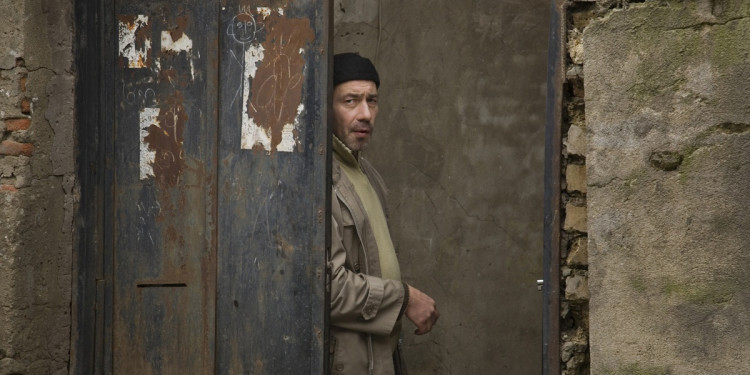
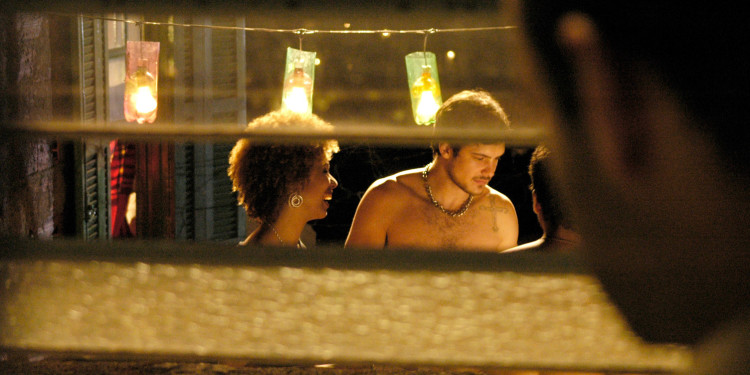
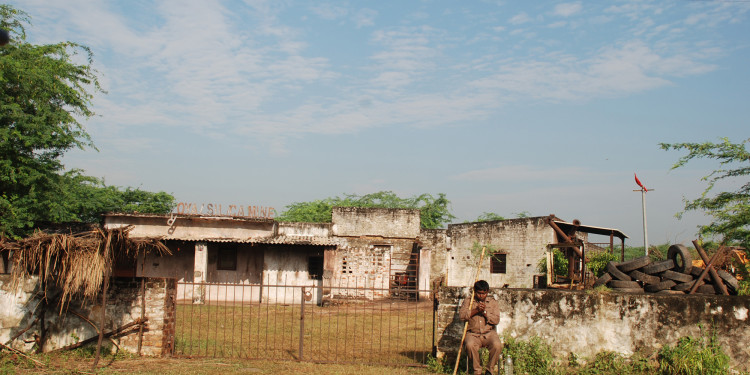
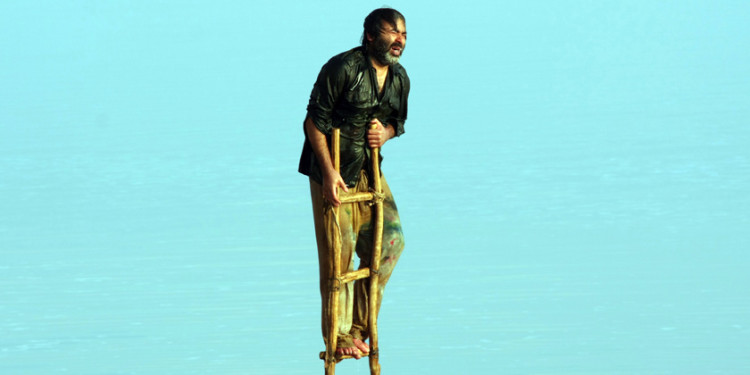
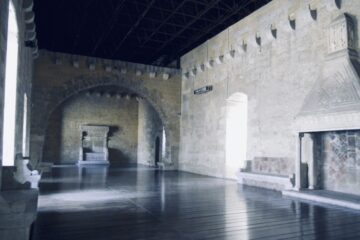
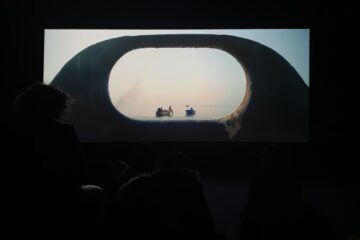
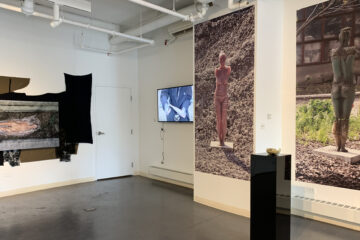
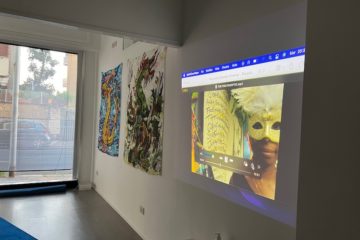

No Comment